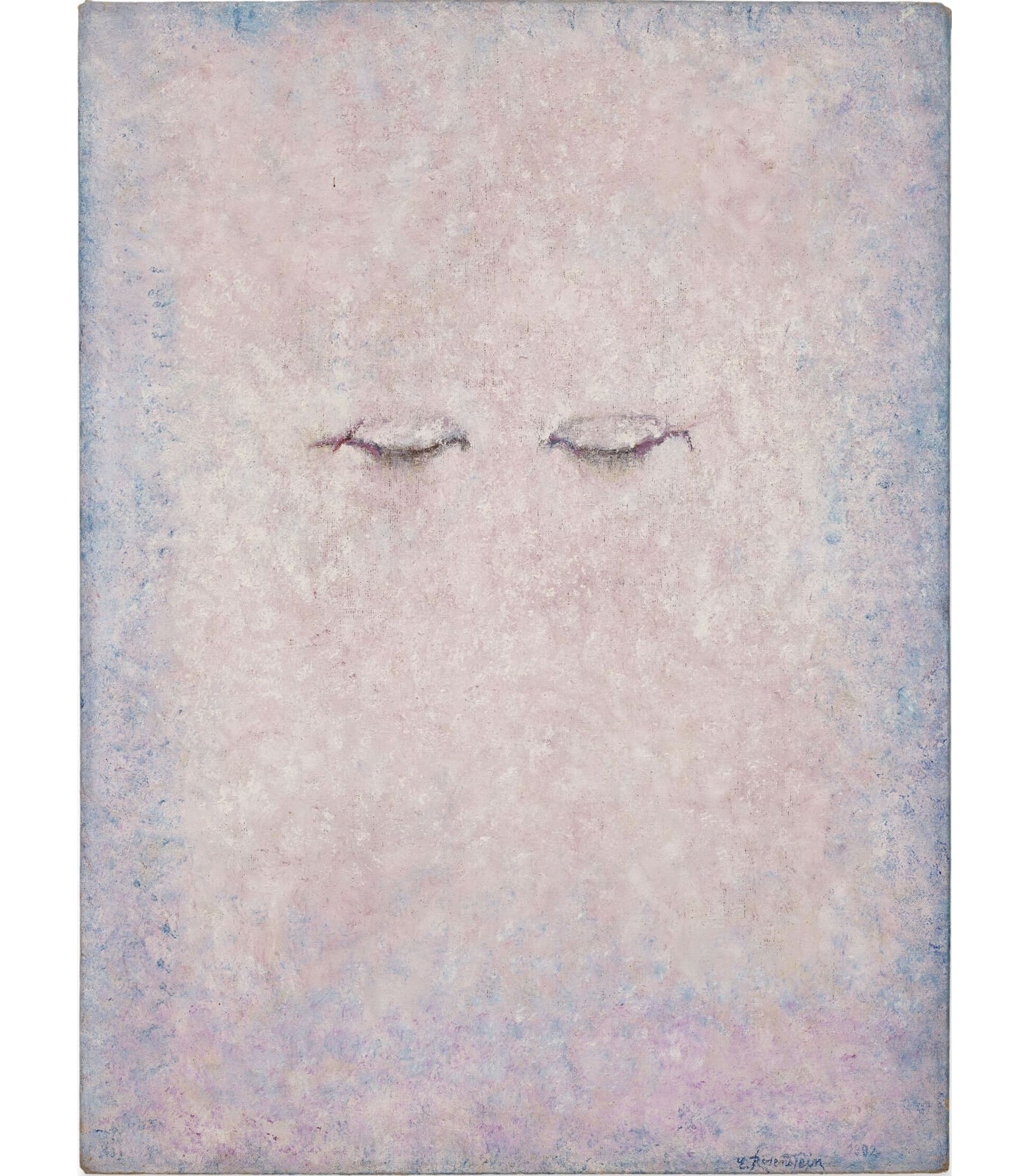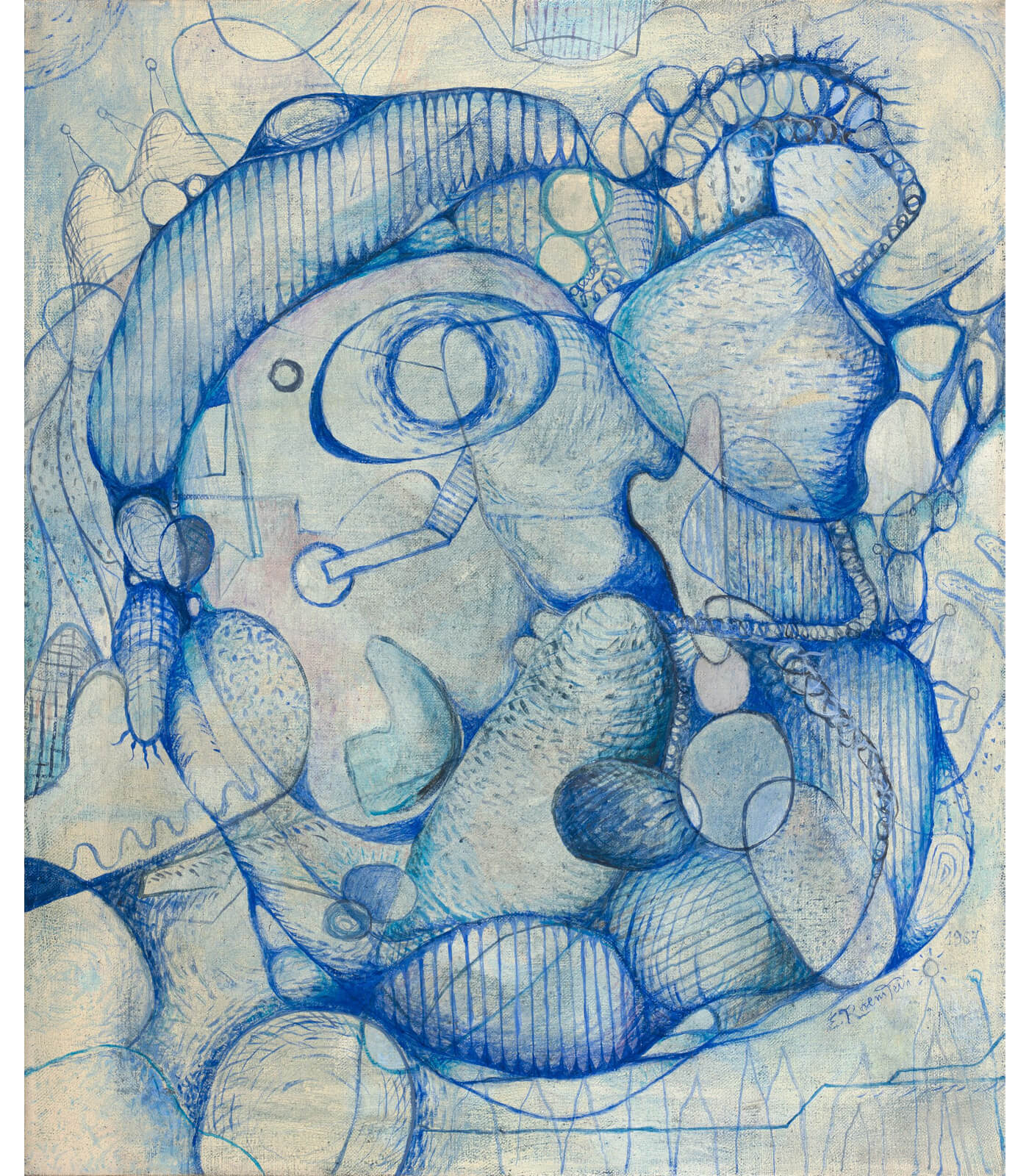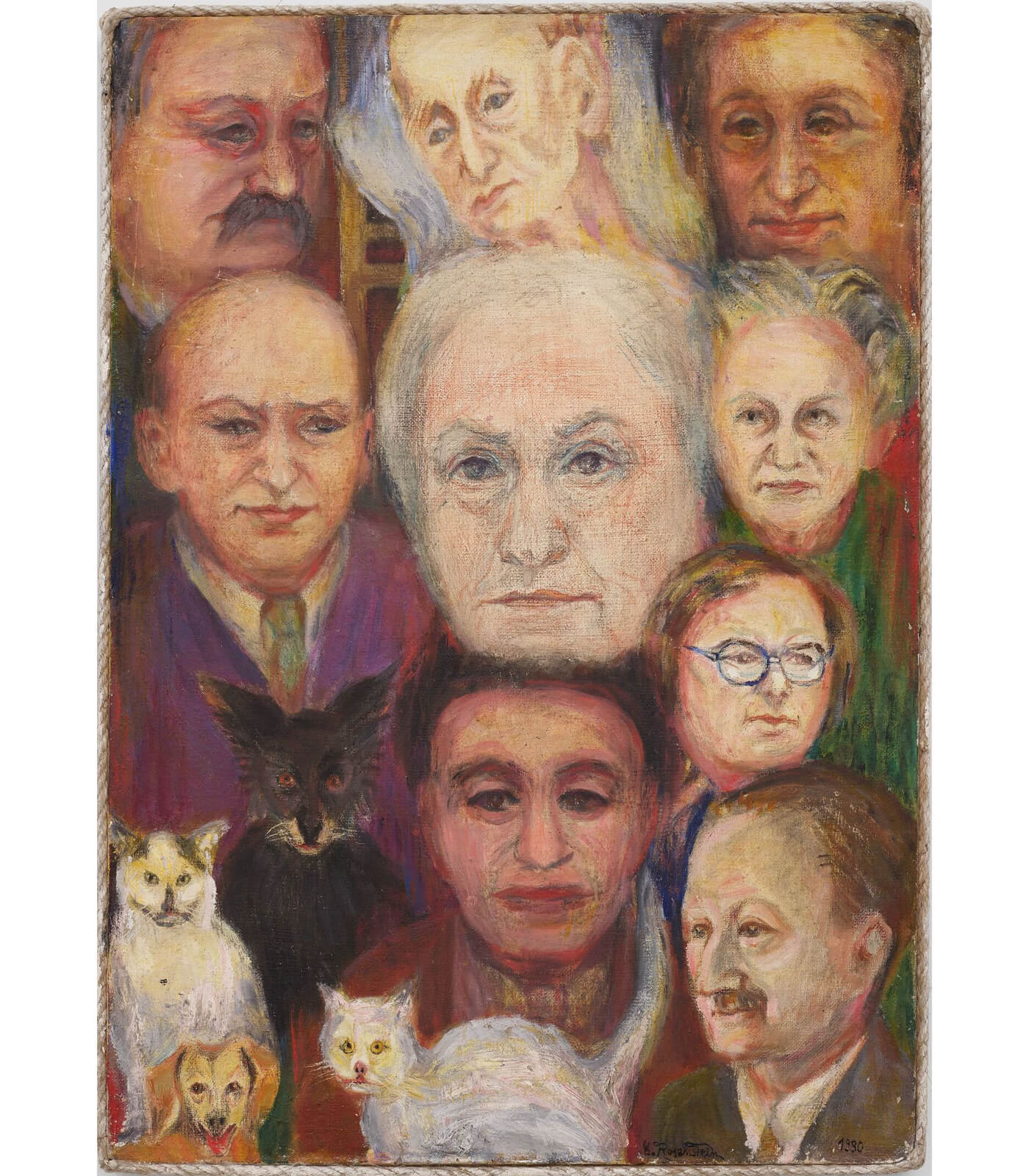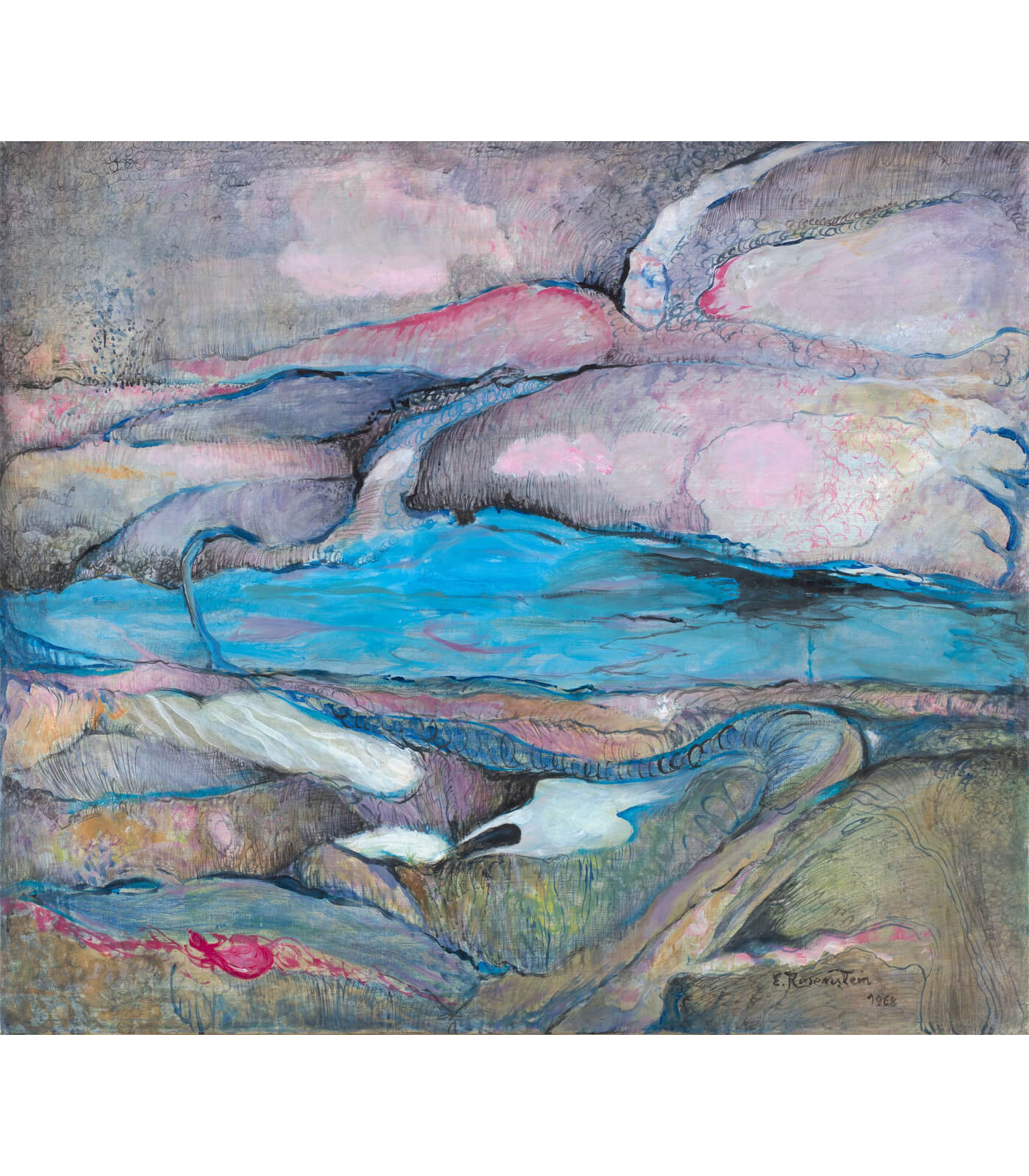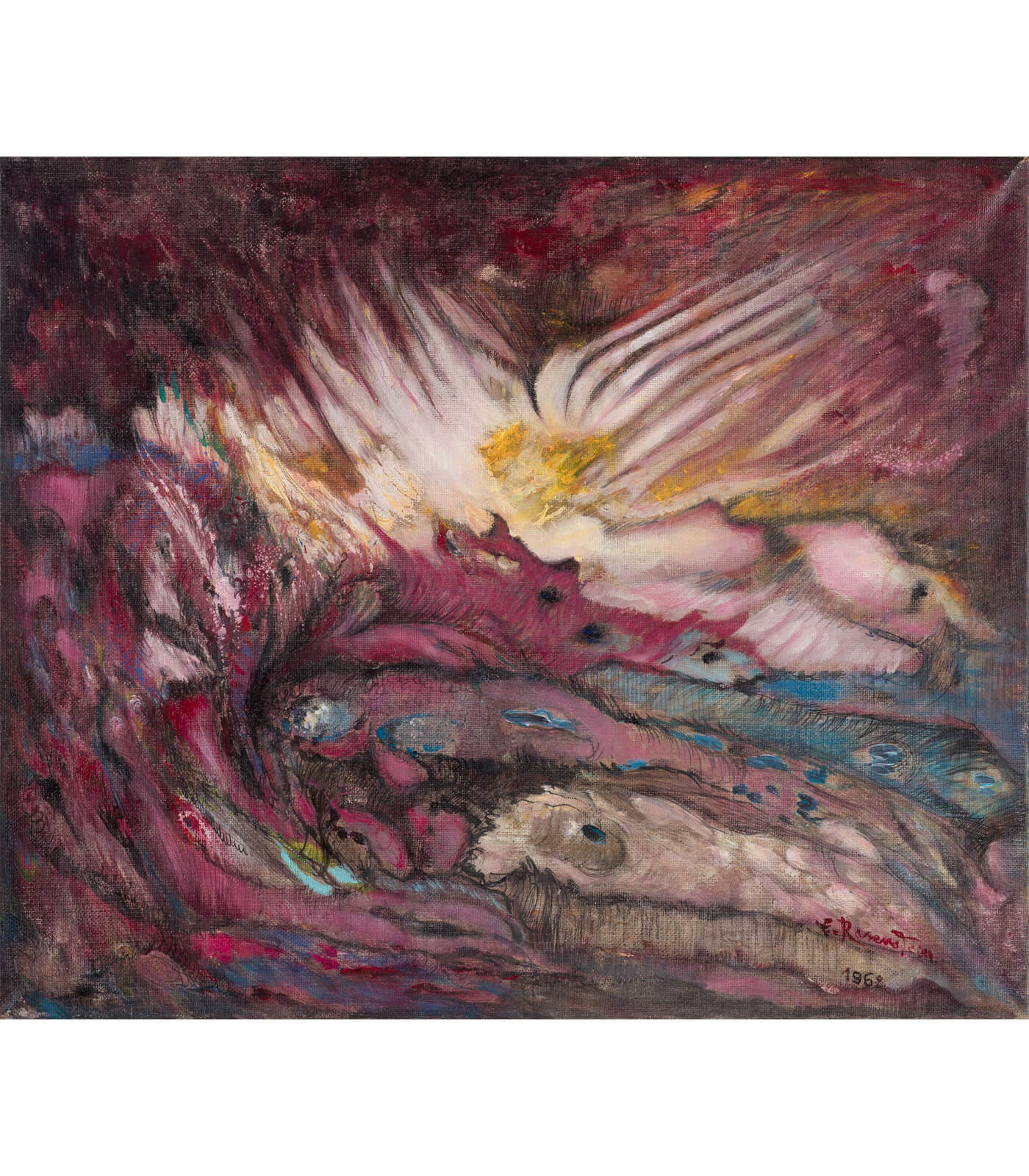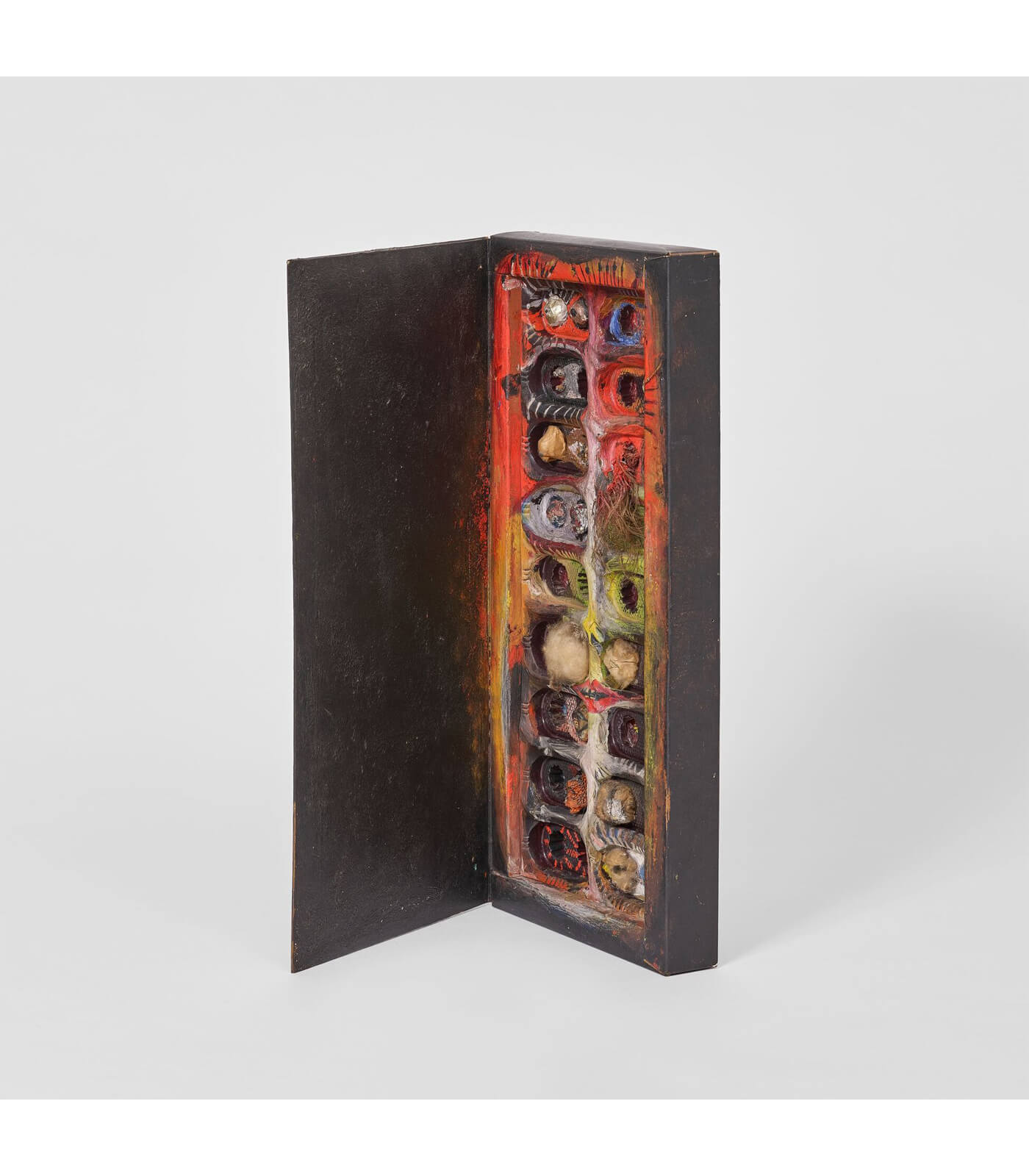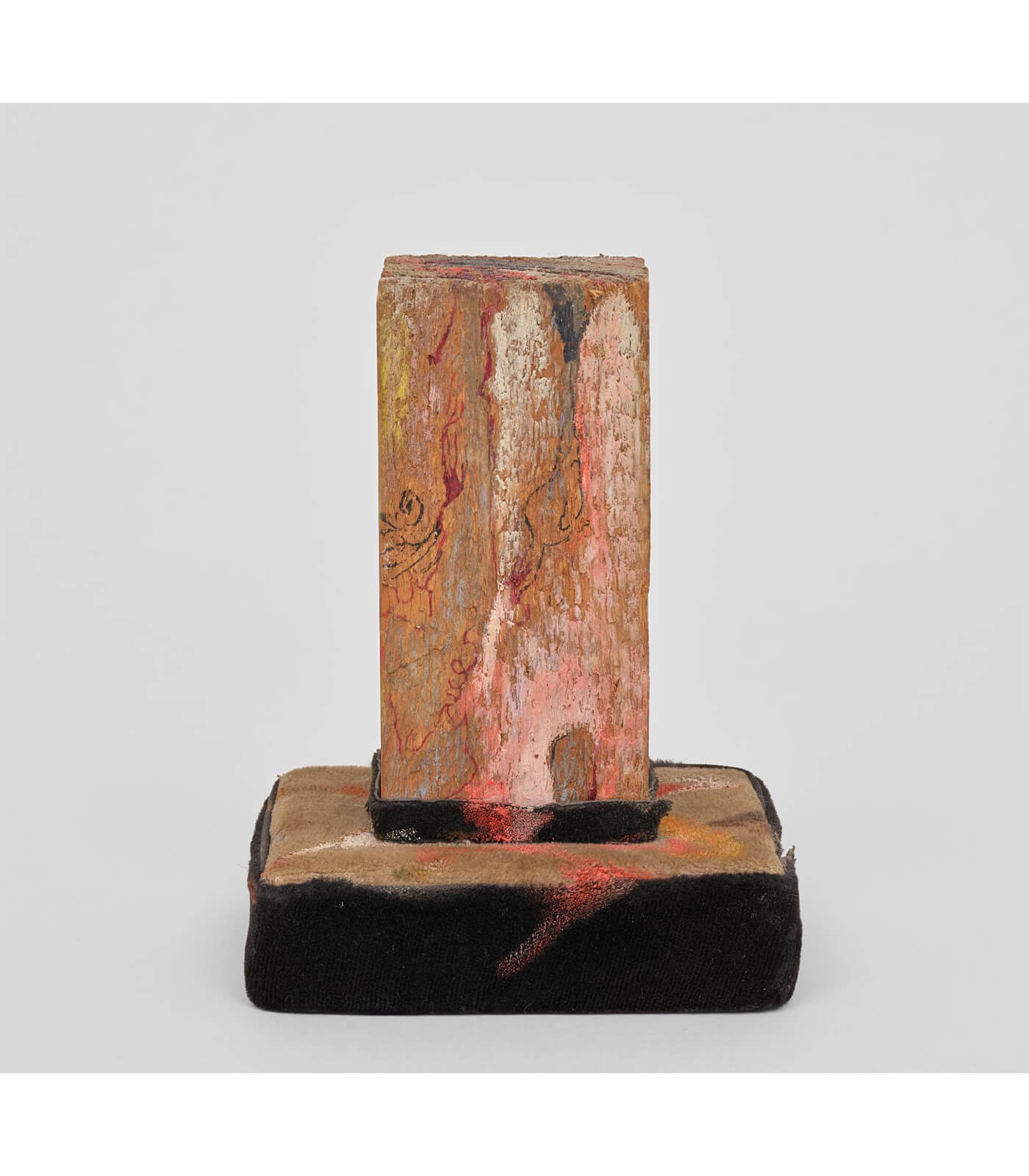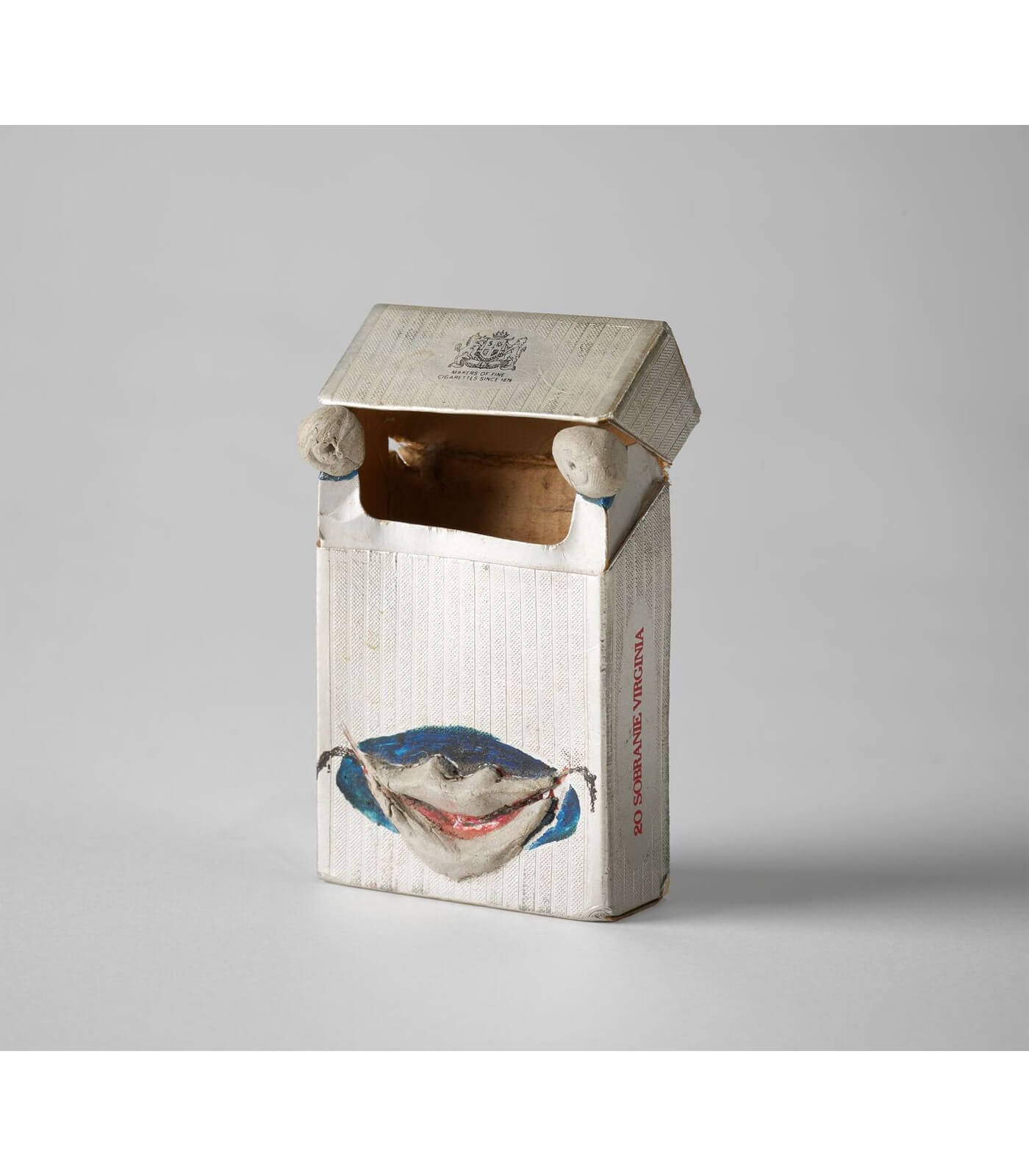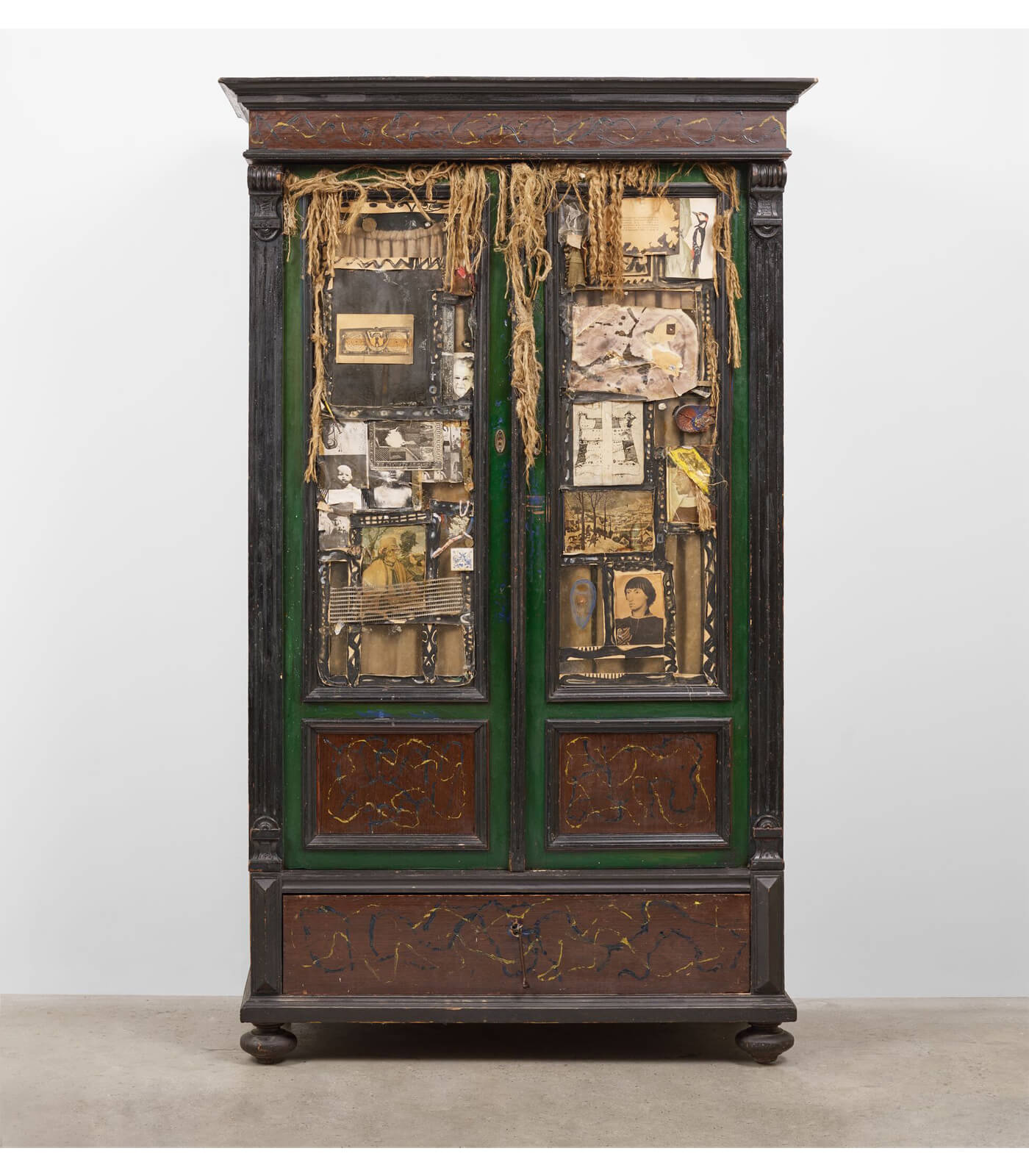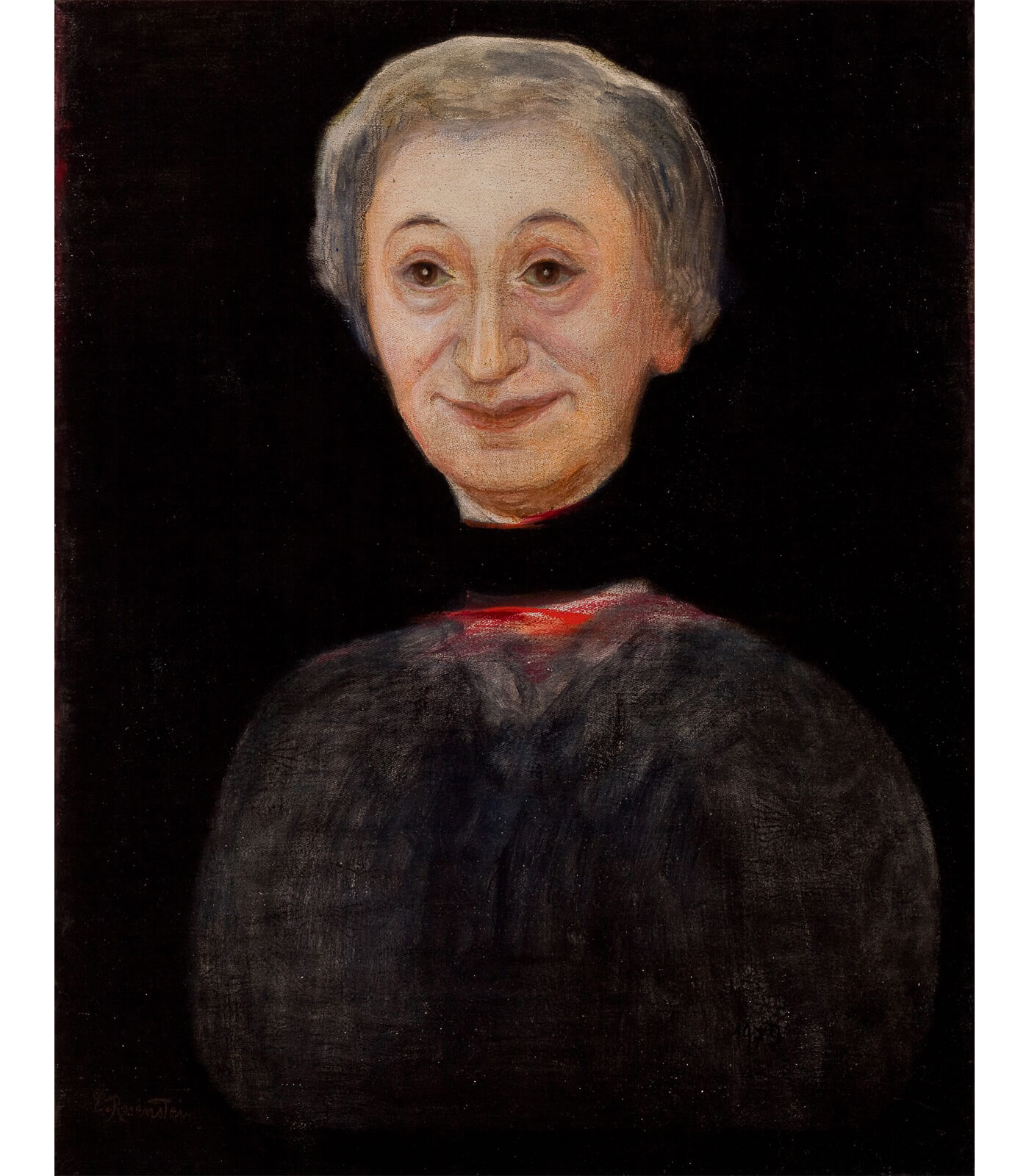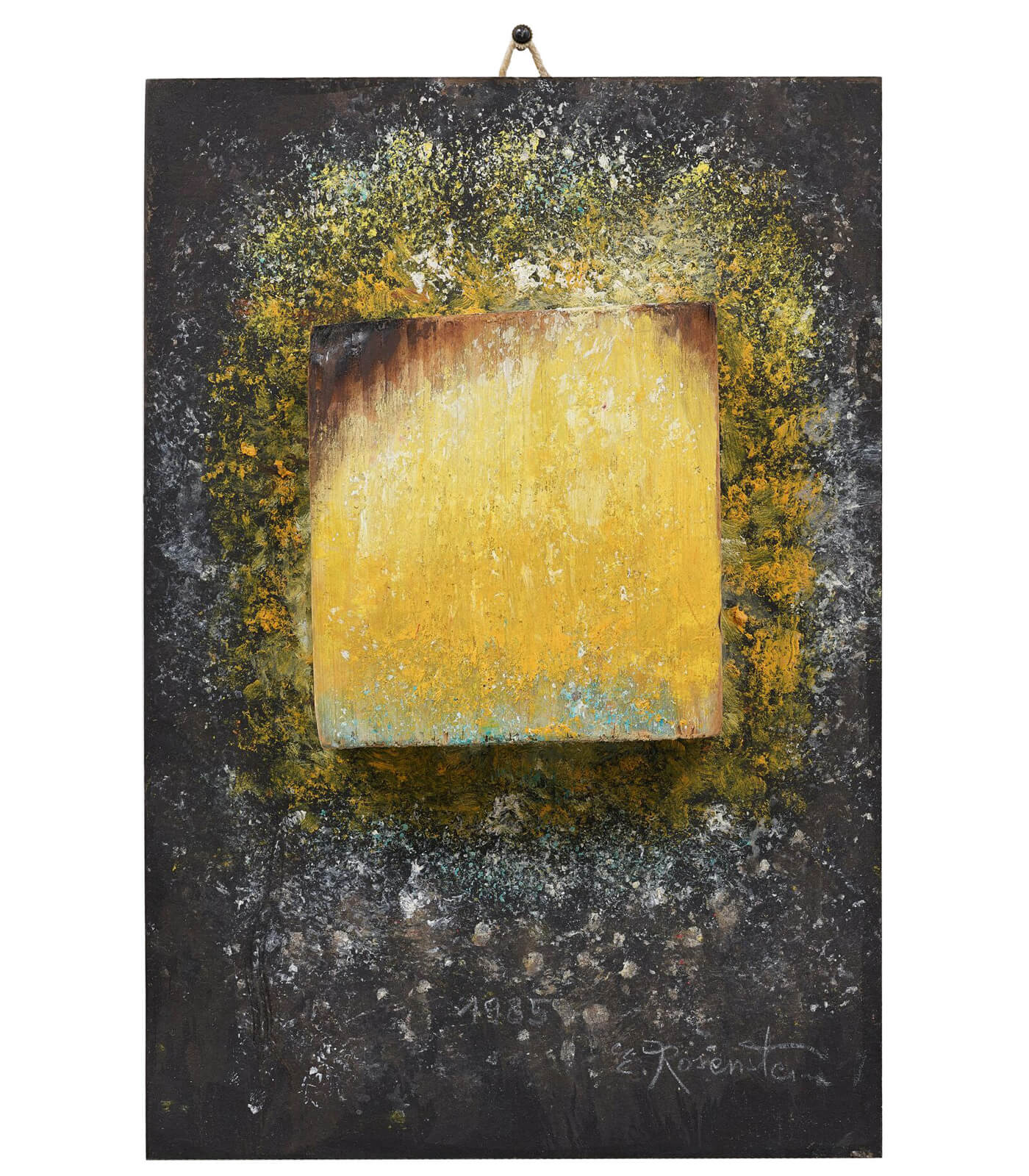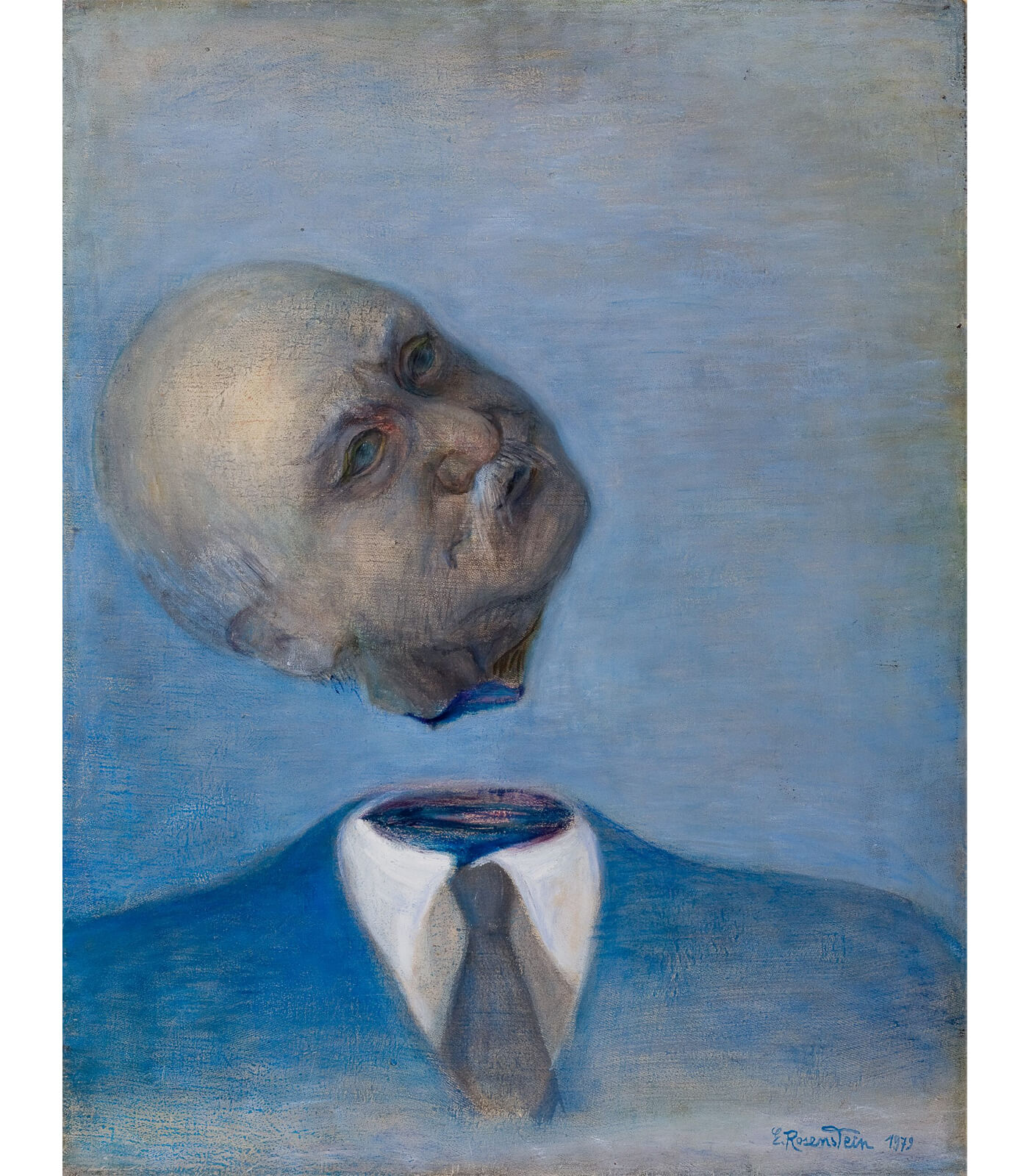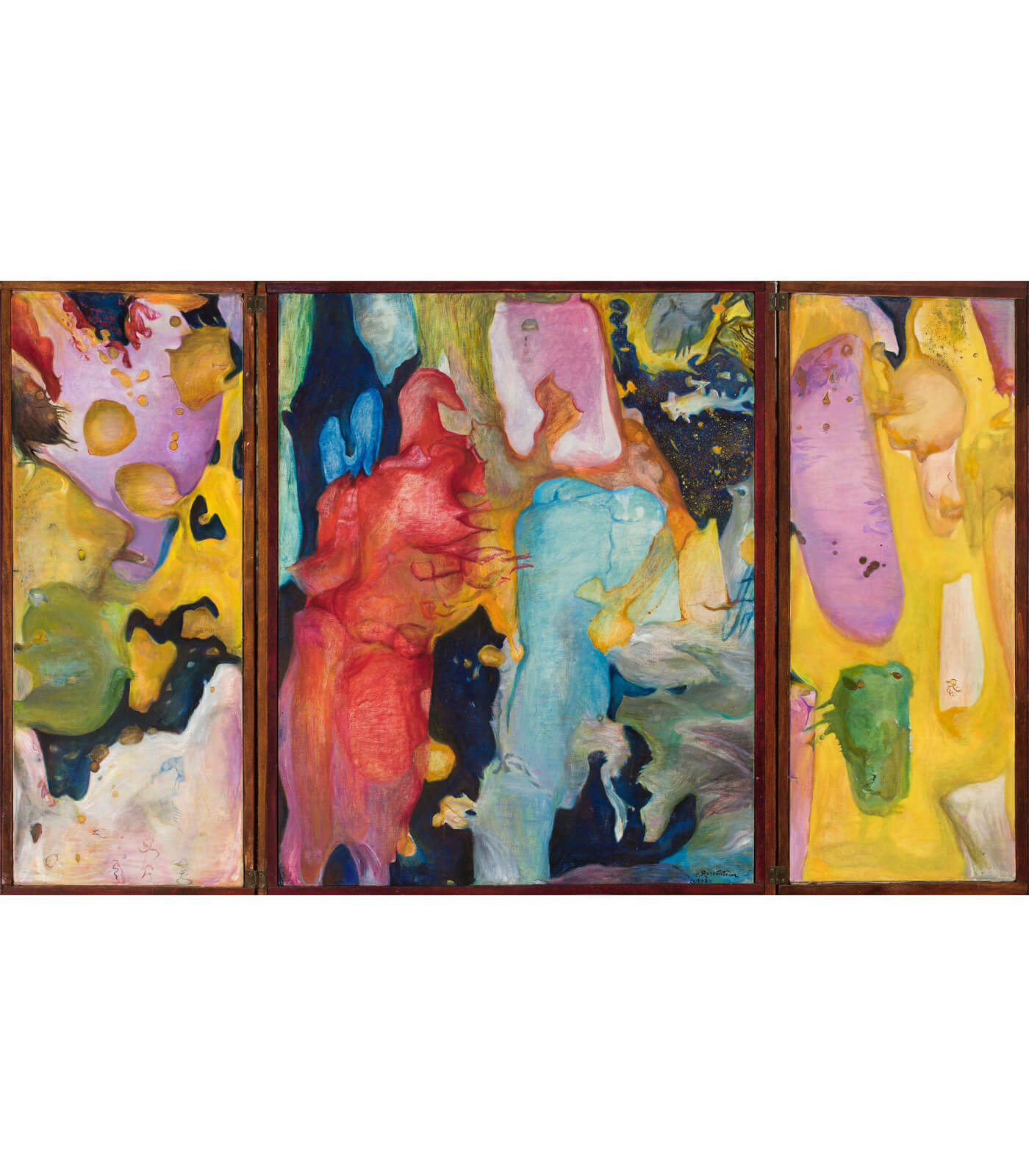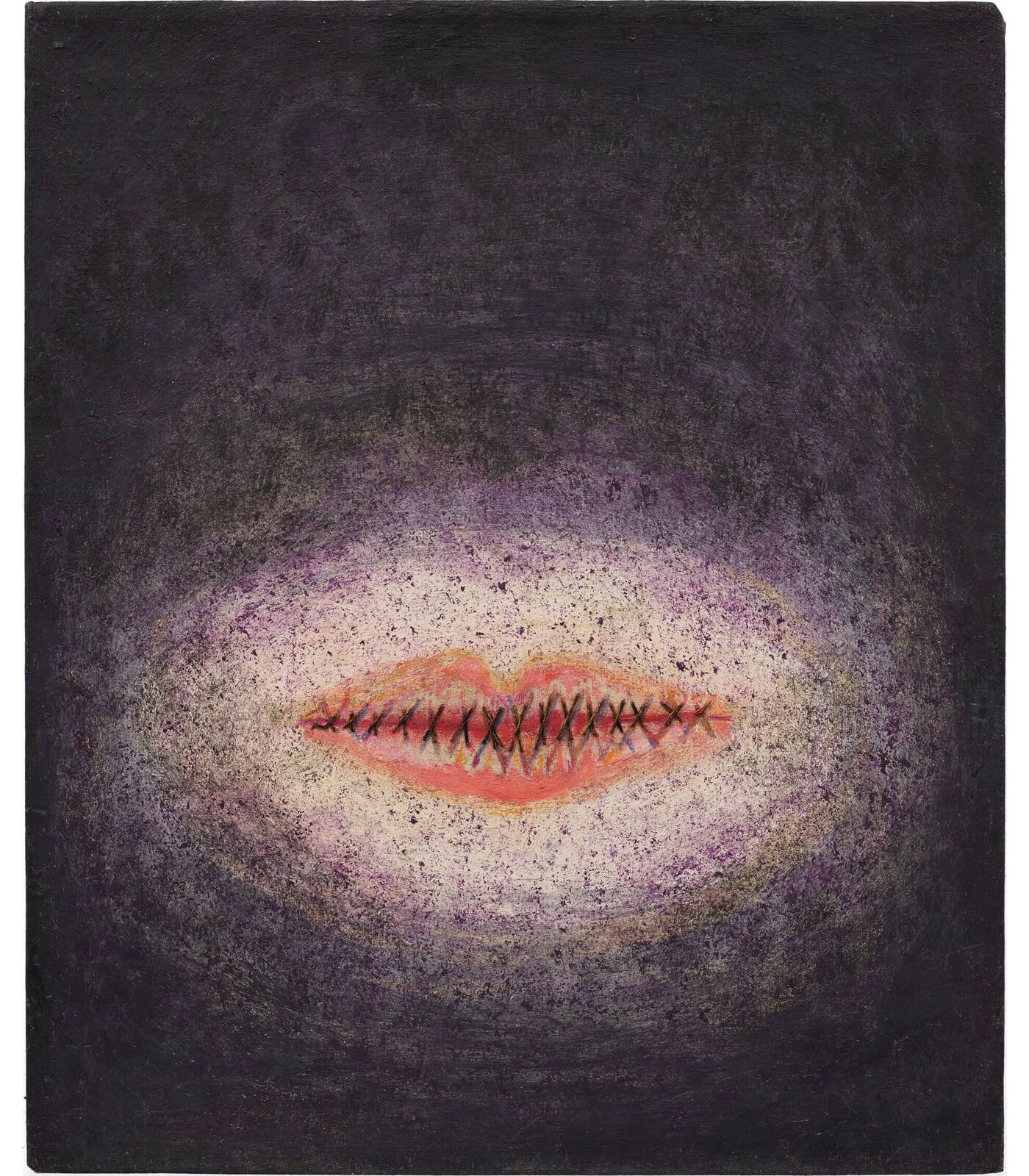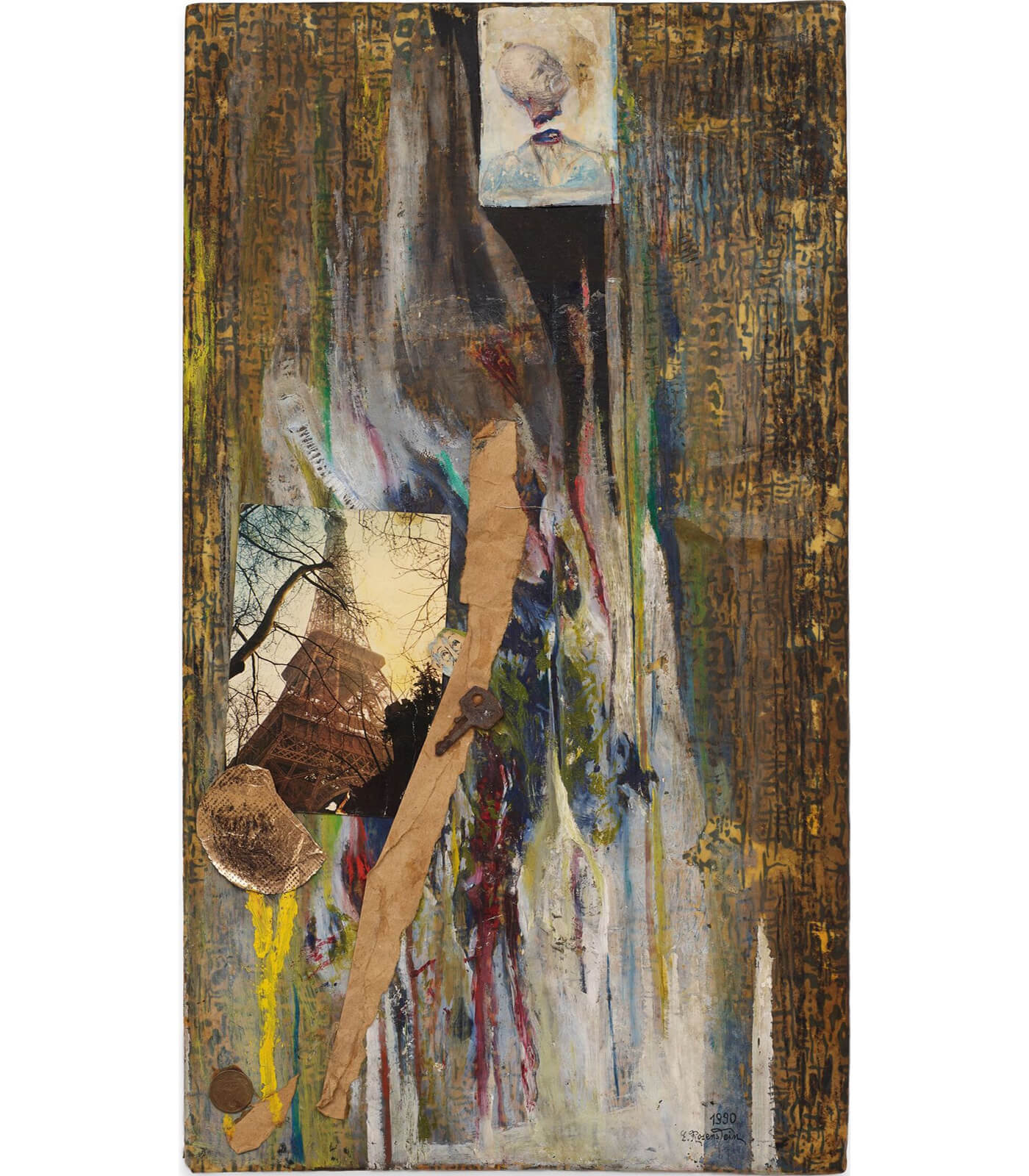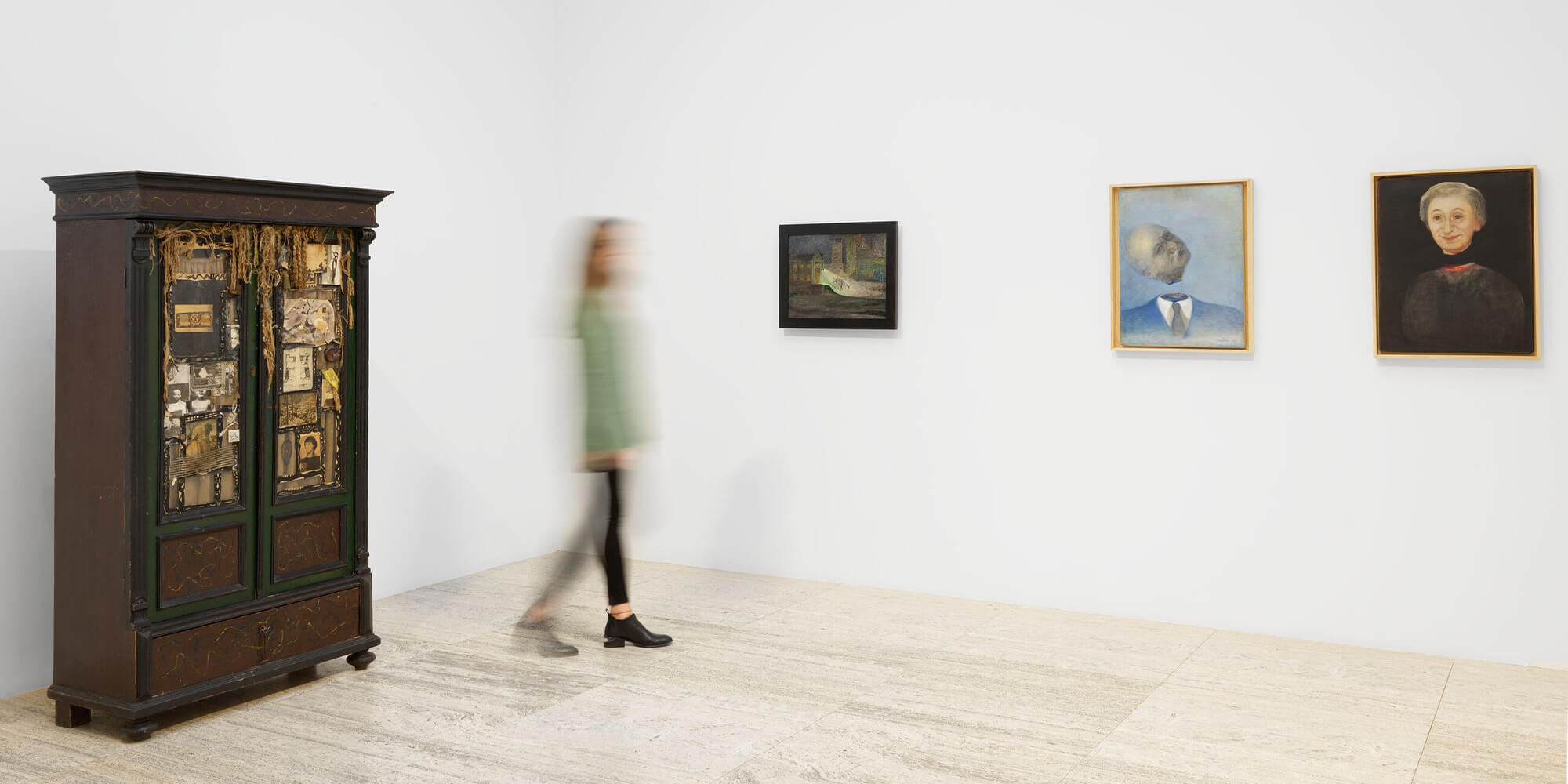
Erna Rosenstein
Once Upon a Time
30 September – 18 December 2021
New York, 69th Street
Hauser & Wirth debuts ‘Erna Rosenstein: Once Upon a Time,’ the first monographic exhibition outside of Poland devoted to Erna Rosenstein (1913 – 2004)
Explore the exhibition
One of the key figures of the Polish avant-garde, Rosenstein’s wartime survival, commitment to Surrealism, and lifelong adherence to leftist ideologies course through a remarkable array of paintings, drawings, and assemblage sculptures, as well as poems, diaristic writings, and deceptively whimsical children’s stories. Steeped in an extraordinary history and responding to the Nazi occupation of Poland, personal traumas suffered in the Holocaust, the postwar sociopolitical upheaval of her native country, and passionate engagement in the intellectual circles of her times, Erna Rosenstein’s work defies simple classification.
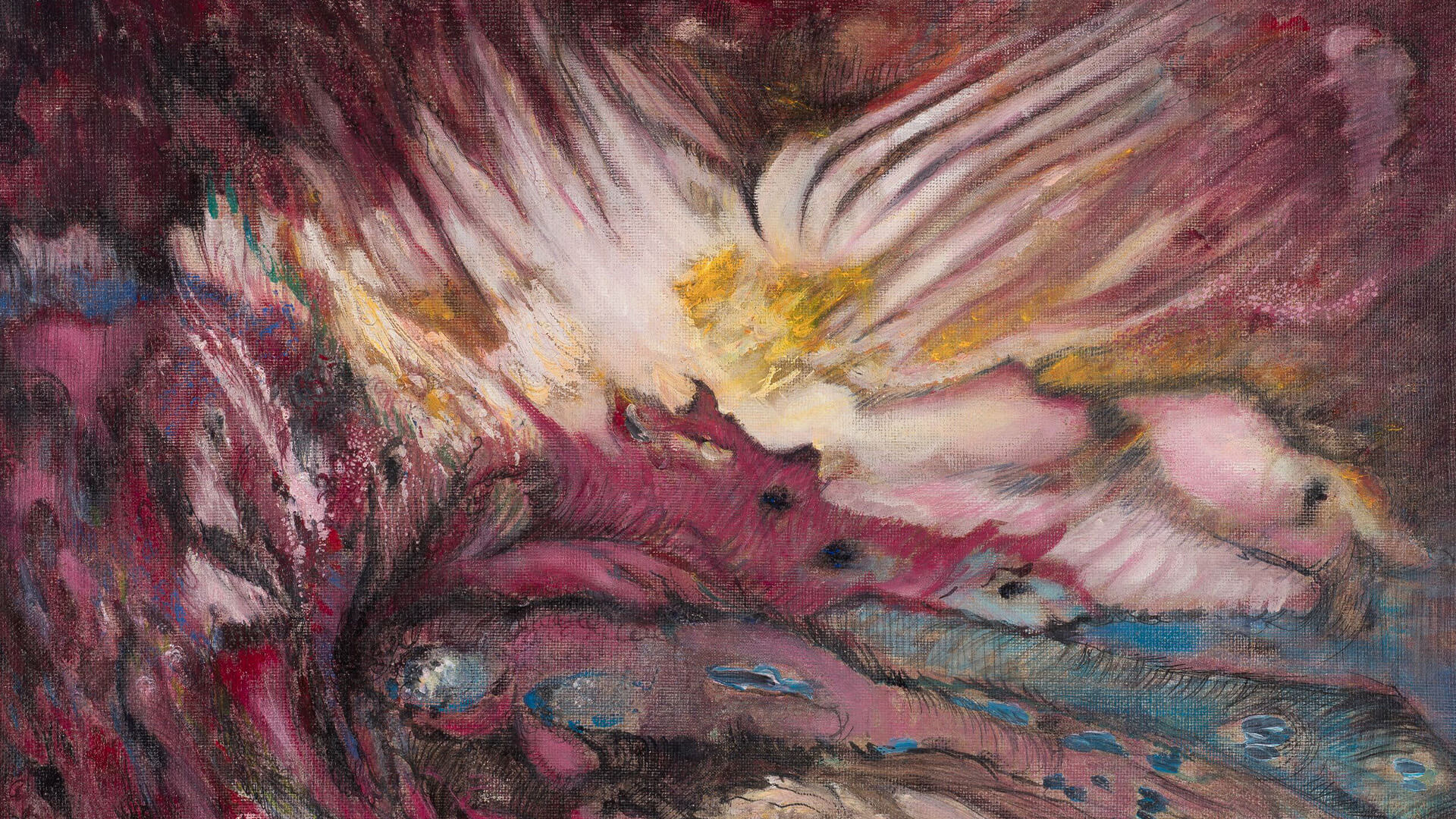
Her six-decades long career was fueled by the formation of prewar artistic, intellectual, and political affiliations, and is expressed through her continued oscillation between autobiographical figuration and biomorphic abstraction. Grappling with themes of memory, trauma, longing, and loss, she used paint, ink, and found materials to suggest a world tinged with allegory, enchantment, and fairy tale.
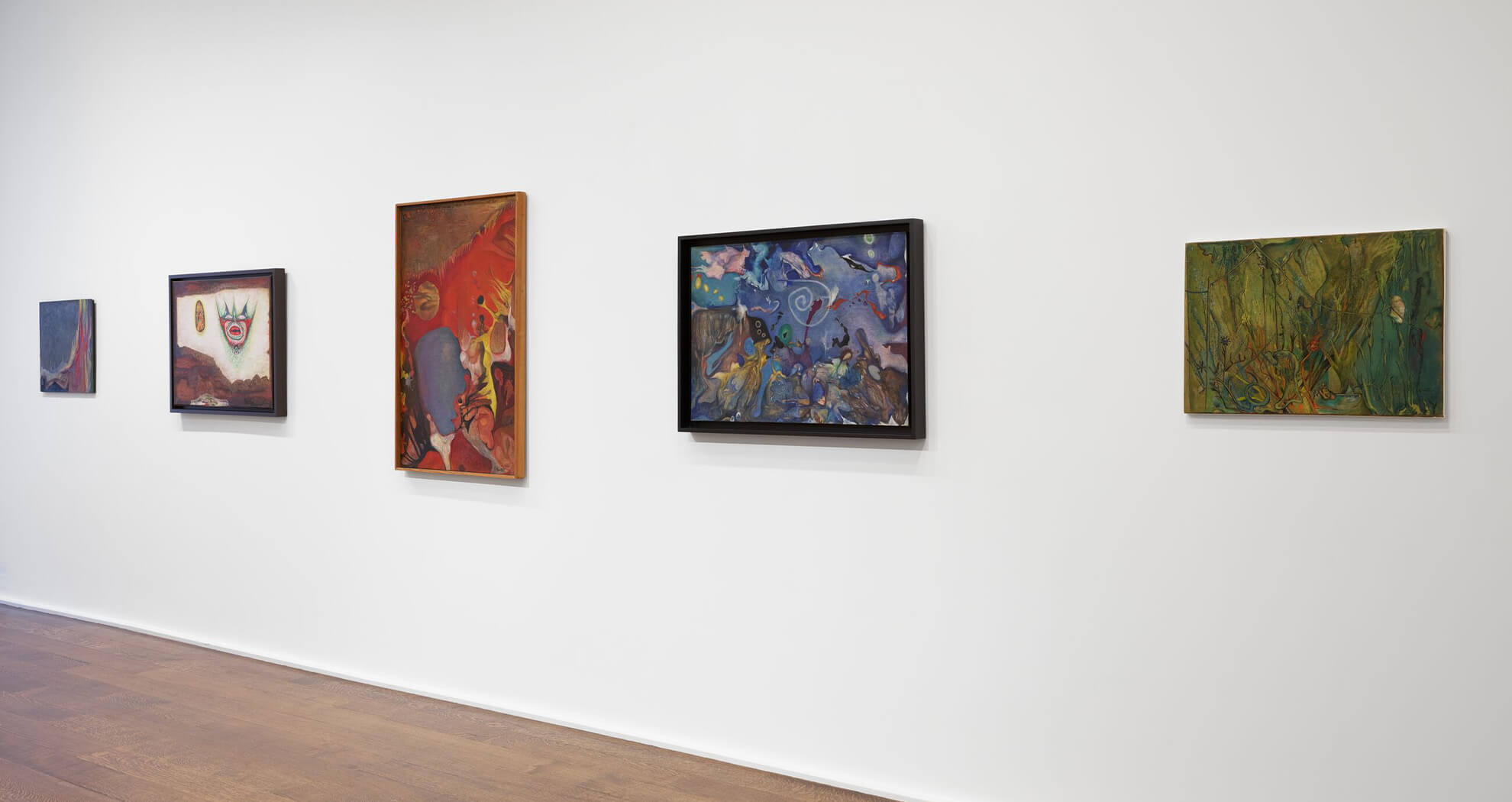
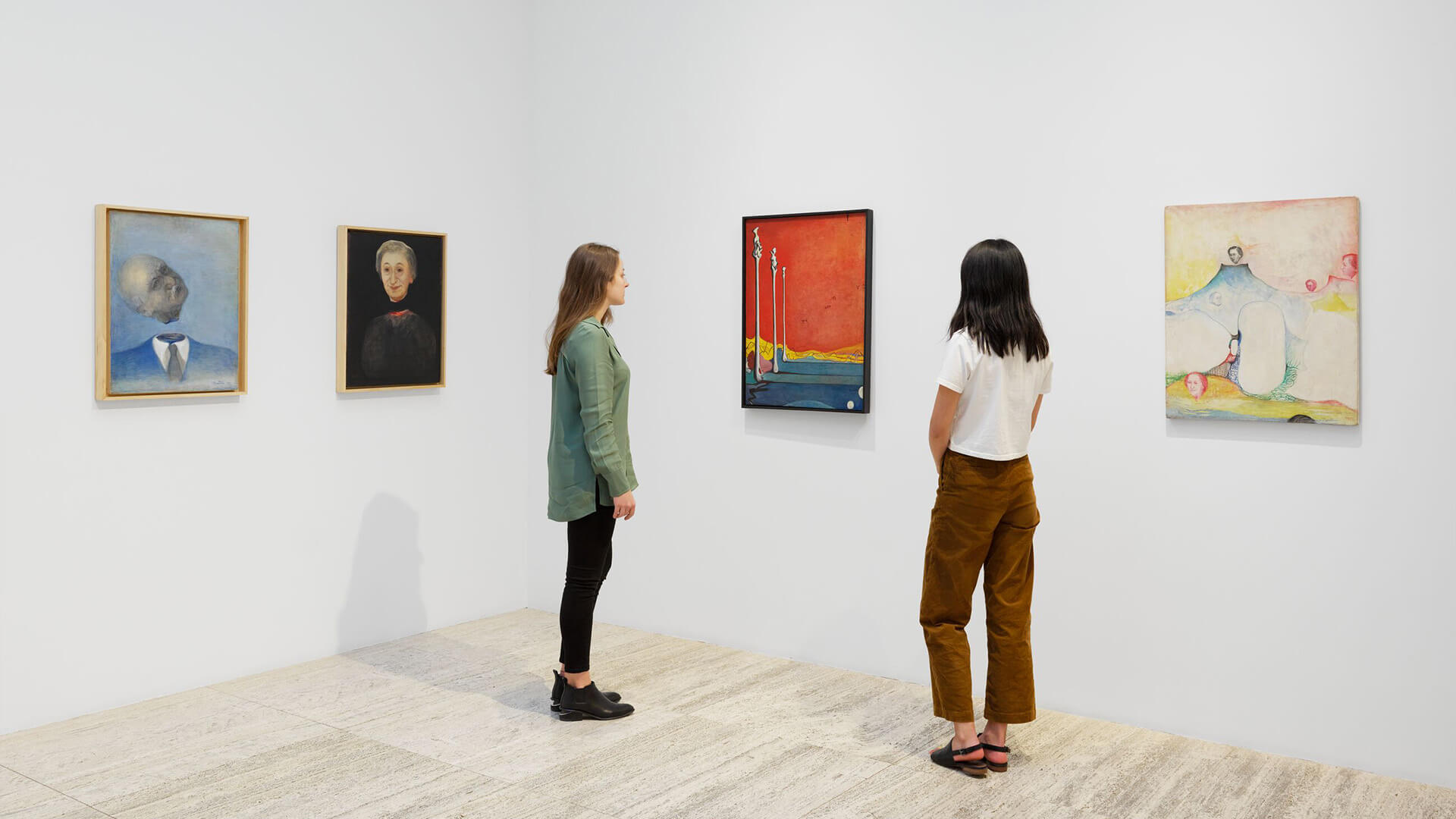
‘Once Upon a Time’ has been organized by curator Alison M. Gingeras. The exhibition brings together over forty works never seen outside of Poland, including institutional loans of landmark paintings and works from The Estate of Erna Rosenstein being exhibited publicly for the first time since the artist’s death in 2004. ‘Erna Rosenstein. Once Upon a Time’ is Hauser & Wirth’s first presentation of the artist’s work since undertaking representation of her estate in 2019, in collaboration with Foksal Gallery Foundation, Warsaw.
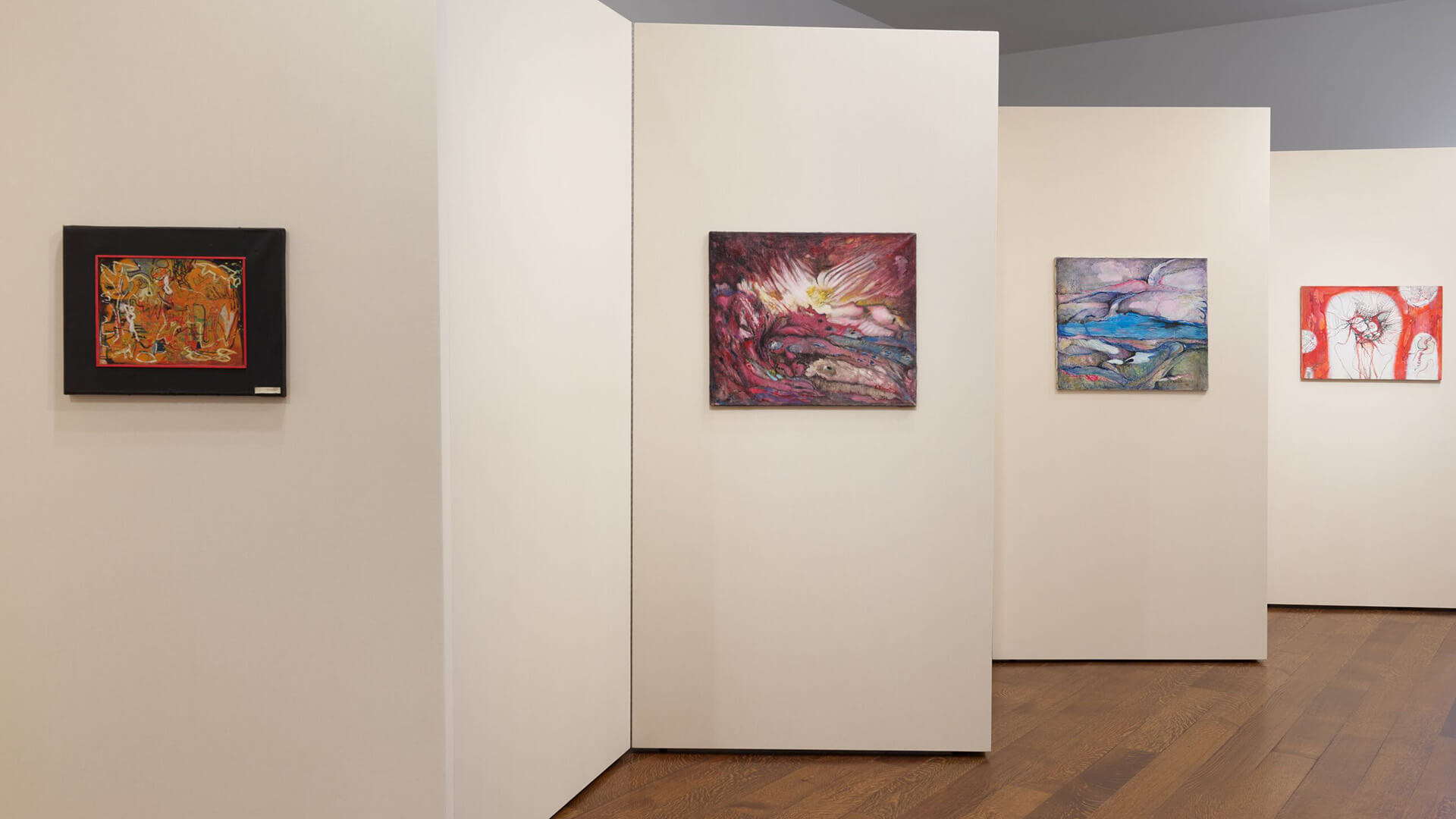
‘Once Upon a Time’ is comprised of paintings and sculptures that embody the constant interplay of figuration and abstraction, the literal and the fantastical, in Rosenstein’s oeuvre. The works on view draw from the many personal experiences, emotional losses, and haunting traumas surrounding her Jewish identity. A highlight of the first floor of the exhibition includes a zigzagging wall that recreates the unconventional design of Rosenstein’s landmark 1967 monographic exhibition at the Zachęta National Gallery of Art in Warsaw.
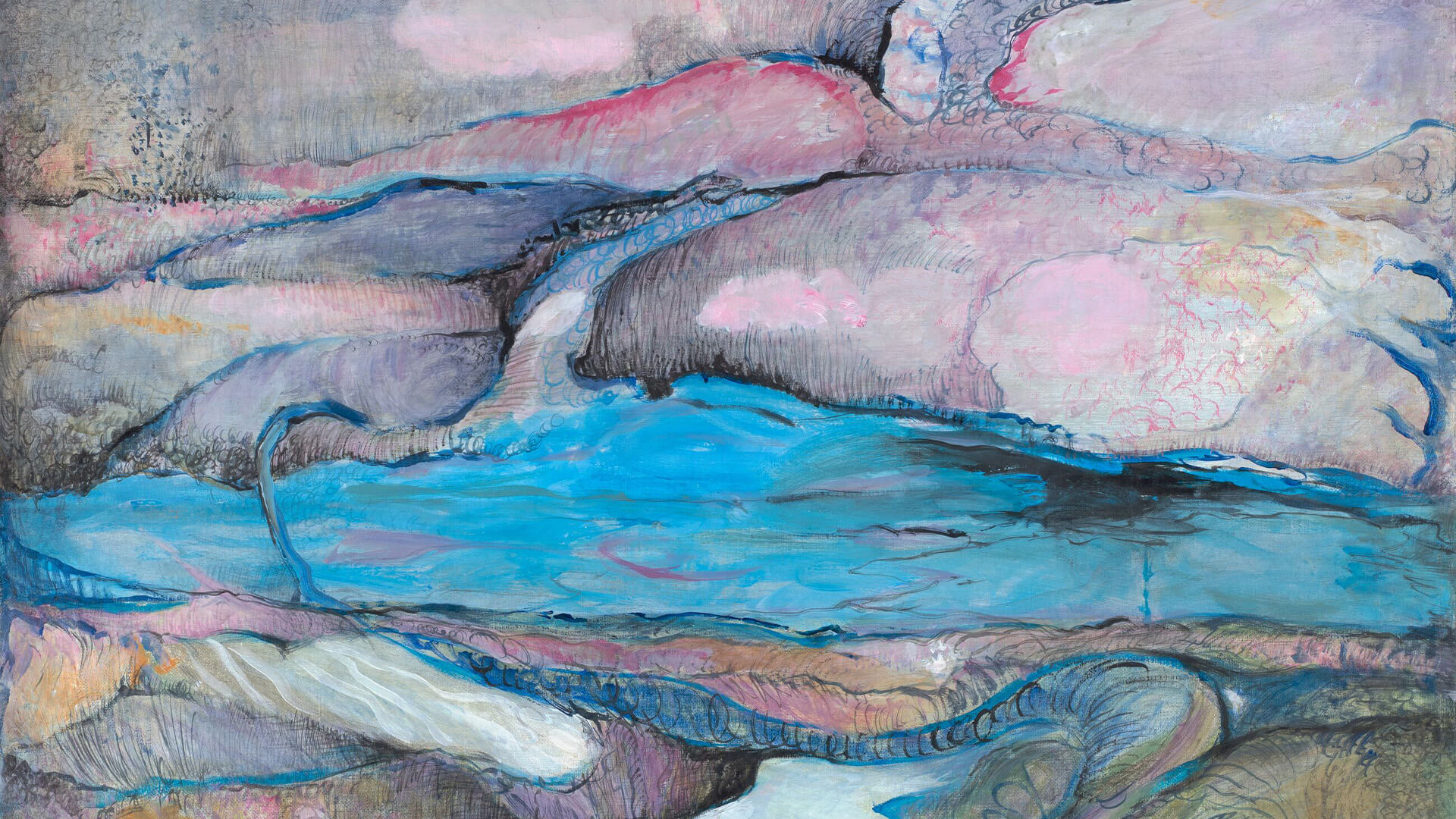
Dating from the early 1950s to the end of the 1970s, abstracted landscapes and biomorphic reveries are hung on the wall in succession, demonstrating the intense focus of those two decades of her practice and reflecting the political and personal turmoil of those years. The work ‘Poświata (Afterglow)’ (1968), depicts a babbling brook running down from the valleys and rolling hills of a pastel landscape rendered in billowing pinks and citron greens, while in contrast, the painting ‘Kwiaty piekła (Hell Flowers)’ (1968) is saturated in deep reds and vibrating biological forms, evoking the sensation of nerve endings or internal organs.
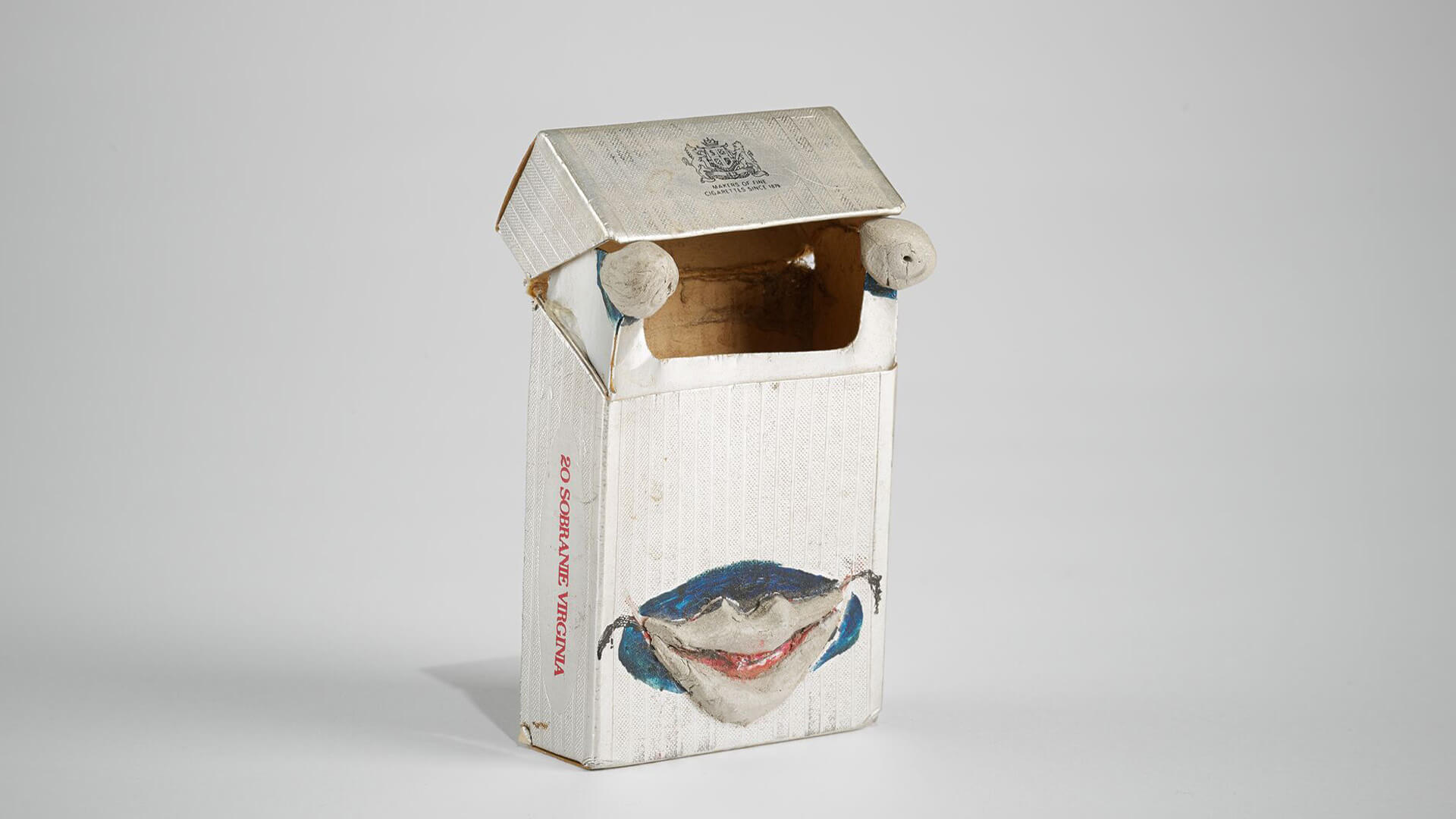
In addition to a survey of Rosenstein’s multifaceted painting work, ‘Once Upon a Time’ also includes a selection of untitled assemblages made by the artist beginning in the early 1980s, a period of martial law in Poland when scarcity prevailed. These works – among them a cigarette pack with eyes, and an old purse with teeth – transform the most everyday bric-a-brac into the substance of art, and further collapsing boundaries between figuration and abstraction. They reflect the whimsical and childlike aspects of Rosenstein’s practice and mirror the artist’s early Surrealist expressions.
Exhibition Guide
Explore the exhibition in greater depth with the exhibition guide highlighting key works and themes in the exhibition. This richly illustrated guide includes insightful text by curator Alison M. Gingeras and rare archival images. Physical copies are available at the gallery.
About the Artist
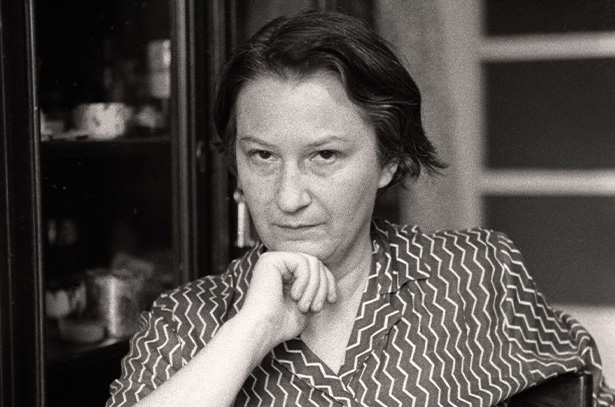
Erna Rosenstein
Born in 1913 in Lwów (now the Ukrainian city Lviv) and raised in Kraków, Erna Rosenstein emerged as part of the Polish avant-garde in the 1930s, associated with the Kraków Group. She studied at the Wiener Frauen Akademie in Vienna in 1932-1934 and then at the Academy of Fine Arts in Kraków between 1934-1937. She was part of a tight-knit circle whose artistic innovations were rooted in socially progressive left-leaning politics and who mobilized actions under the Communist Union of Polish Youth. As part of the Kraków Group, she identified with such fellow artists as Jonasz Stern, Jadwiga Maziarska, and especially, Tadeusz Kantor, whose underground experimental artistic and theater activities embraced Surrealism. In late 1937, prior to the outbreak of the Second World War, she spent several months in Paris where she saw the Exposition Internationale du Surréalisme (International Surrealist Exhibition) organized by André Breton and Paul Éluard. Passing through Germany on her way home to Poland, she also visited the Berlin edition of the Nazi Party’s notorious Degenerate Art Exhibition. These two shows made a profound impact upon Rosenstein’s early artistic ideas and undoubtedly influenced her storied career.
When war erupted and the Nazis invaded Poland in 1939, Rosenstein returned with her family to Lwów. They spent two years living in the Soviet occupied city, which provided less hostile conditions for Jewish families; there Rosenstein joined the Association of Artists. When Lwów was seized by the German army in 1941, the artist and her mother moved to the Jewish ghetto while her father went into hiding. The family acquired false identity papers in 1942, and escaped the ghetto to flee toward Warsaw. The horrifying events that followed would haunt the imagery and themes Rosenstein explored in her work for the ensuing five decades—in the process of the family’s sojourn, Rosenstein witnessed the brutal murder of her parents in a forest in the middle of the night. Wounded but able to escape, she survived the next three years of the war by living under false identities, changing the whereabouts of her lodging in Warsaw, and ultimately hiding in the small rural town of Częstochowa until the war’s end. While Rosenstein produced artworks in the prewar period, nothing survived the war. She resumed painting in 1945, and, in the years that followed, joined the Polish Workers’ Party, became a member of the Association of Polish Artists and Designers (ZPAP) and the Young Artists Group, and exhibited her work in the National Modern Art Exhibition in Kraków (1948 – 1949). In 1947 and 1948, she traveled to Switzerland, England and Paris, where she saw a series of Surrealist exhibitions. While in Paris, she met her future husband, the literary critic and translator Artur Sandauer, with whom she eventually settled in Warsaw. Together they had a son, Adam Sandauer.
During the Socialist Realist period, between 1949 and 1955, Rosenstein withdrew from official artistic life; defying the communist-imposed artistic doctrine, she worked outside the mainstream art world. In 1955, she became one of the nine artists who reactivated the Kraków Group, staging the first modern art exhibition of the post-Stalin ‘thaw’ era. Her first solo exhibition was held in Warsaw in 1958 at the Kzywe Koło Gallery of Modern Art, run at the time by Marian Bogusz, a fellow artist and apostle of modernity. She came into prominence with a 1967 monographic exhibition at the Zachęta in Warsaw, a presentation designed by Tadeusz Kantor and inspired by the design of Surrealist exhibitions. She then participated in numerous national and international exhibitions such as the Golden Grape Symposiums in Zielona Góra and took part in Kantor’s happenings ‘Cricotage’ (1965) and ‘Panoramic Sea Happening’ (1967). In 1976, she was awarded the prestigious Cyprian Kamil Norwid Art Critics Award, and in 1996, the Jan Cybis Prize, Poland’s most respected artistic distinction.
Erna Rosenstein was an author of paintings, assemblages, drawings, objects, and artist books. She published seven volumes of poetry, among others Ślad (Trace) in 1972 and Spoza granic mowy (From Beyond the Edges of Speech) in 1976. She died on November 10, 2004 in Warsaw. Her works are in the collections of majors Polish and international collections such as the National Museums in Warsaw, Wrocław and Kraków as well as the Muzeum Sztuji in Łódź. Recent international presentations of Rosenstein’s works include Unorthodox at The Jewish Museum in New York (2016), documenta 14 in Athens and Kassel (2017), and the travelling exhibition Surrealism Beyond Borders at The Metropolitan Museum of Art in New York and Tate Modern in London (2021-2022).
Inquire about available works by Erna Rosenstein
From as early as the 1940s, Rosenstein’s writings coexisted alongside her visual art practice. After the birth of her son, Adam Sandauer, in 1950, she began composing fairytales. Much like her paintings, these drew their narratives from the tension between magical realism and a bleak, pragmatic reality replete with loneliness and misfortune. Often, Rosenstein’s writings became allegories of her own Polish Jewish experience with anti- Semitism. The bright, whimsical watercolor illustrations of Rosenstein’s ‘Historyjka o przygodach ślimaka i jego przyjaciół (Tiny Tale of Snail and All His Friends)’ (1997 – 2001) brings a cast of animal kingdom characters to life and follows the journey of the Cow-Snail family in lessons of rejection, acceptance, indifference, and love, drawing parallels to her family’s own real-life struggles. The work, whose manuscript was recently discovered in the Polish National Library in Warsaw, is the only known fairy tale illustrated by Erna Rosenstein herself and is included in the new volume published by Hauser & Wirth Publishers.
–
‘Erna Rosenstein. Once Upon a Time’ is on view now through 18 December 2021 at Hauser & Wirth New York, 69th Street.
Related Content
Current Exhibitions
1 / 10
